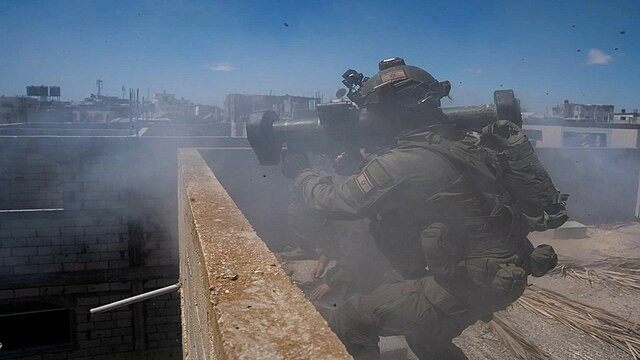Hezbollah launched hundreds of rockets and drones at Israel early Sunday morning. Israel's military responded swiftly with approximately 100 fighter jets targeting southern Lebanon to prevent what they described as a "larger attack." The exchange marked a dramatic intensification in the ongoing conflict, drawing concerns that the violence could spiral into a broader regional war involving Iran, Hezbollah's backer, and Israel's key ally, the United States.
The confrontation unfolded as Israel continued its military operations against Gaza, further complicating the volatile situation in the region. In Lebanon, the strikes left at least three people dead, though the damage in Israel was reported as limited, and no casualties were confirmed. Israeli Foreign Minister Israel Katz emphasized that Israel does not seek a full-scale war, but stated, "We are determined to do everything possible to defend our country."
Hezbollah, the Iran-backed Lebanese militant group, claimed responsibility for firing 320 Katyusha rockets toward Israel, targeting 11 military positions as part of what it termed the "first phase" of its response to Israel's assassination of Fuad Shukr, a senior Hezbollah commander, last month. The Israeli military, however, countered that its preemptive strikes had thwarted a much larger attack planned by Hezbollah, claiming to have destroyed thousands of rocket launchers aimed at northern and central Israel.
Despite Israel's assertions, Hezbollah dismissed claims that its attack had been effectively countered, asserting that its drones had successfully carried out their mission and warning that further retaliation for Shukr's killing would follow. The exchange of fire coincided with high-level ceasefire talks in Cairo, where negotiators from the U.S., Egypt, and Qatar were attempting to broker a halt to the ongoing fighting in Gaza.
The Israeli military's preemptive strikes targeted more than 40 Hezbollah launch sites across southern Lebanon, marking one of the densest bombardments since hostilities resumed in October. As warning sirens blared across northern Israel, residents were instructed to stay near air raid shelters. The Iron Dome defense system intercepted several of the rockets, though some caused damage to properties in the north.
In Lebanon, the strikes were felt intensely, particularly in the town of Khiam, where at least one Amal fighter, an ally of Hezbollah, was killed. The Lebanese caretaker government convened an emergency session in response to the attacks, while Hezbollah leader Sayyed Hassan Nasrallah was expected to address the nation later in the day.
The situation has sparked international concern, with President Joe Biden closely monitoring developments. The White House reaffirmed its support for Israel's right to defend itself, while also emphasizing the importance of regional stability. "We will keep supporting Israel's right to defend itself, and we will keep working for regional stability," said National Security Council spokesperson Sean Savett.
The United Nations peacekeeping force in Lebanon and other UN offices have urged all parties to cease fire, labeling the recent developments as "worrying." Egypt, a key mediator in the Gaza ceasefire talks, also expressed concerns about the potential for a new war front opening in Lebanon.
The escalation follows a series of tit-for-tat actions between Israel and Hezbollah, which began with Hezbollah's missile launches following Hamas's surprise attack on Israel on October 7. Although both sides had managed to avoid a full-blown conflict, the balance appeared to shift after a missile strike in the Israeli-occupied Golan Heights last month, followed by the assassination of Shukr.
Hezbollah's attack on Sunday was further complicated by the assassination of Hamas political leader Ismail Haniyeh in Tehran, an event that has escalated the rhetoric from Iran, which has vowed reprisals against Israel.
As the situation remains highly volatile, the potential for a wider conflict involving multiple regional players looms large. The Israeli cabinet held emergency meetings throughout the day, and the IDF has placed its forces on high alert. Meanwhile, in the U.S., Secretary of Defense Lloyd Austin held discussions with his Israeli counterpart, Defense Minister Yoav Gallant, stressing the importance of preventing further escalation while reiterating U.S. support for Israel's defense actions.




